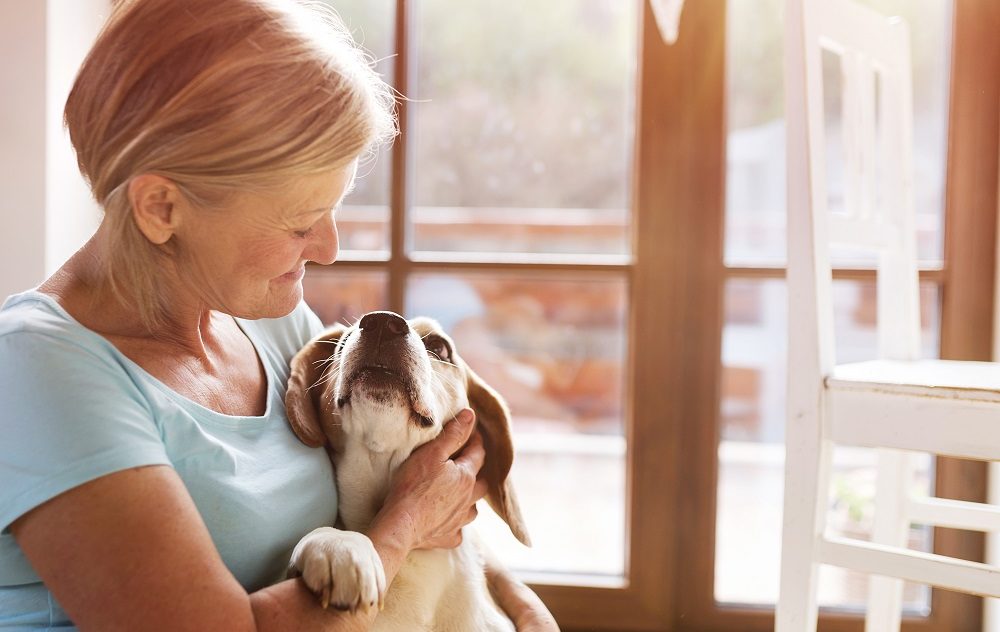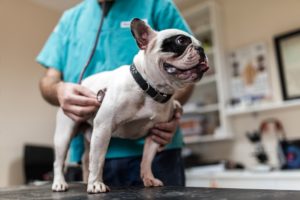
You are likely familiar with pneumonia, and may have experienced this serious lung infection yourself at some point. Although most pneumonia types your pet may develop result from a bacterial, viral, or fungal infection, aspiration pneumonia develops for a different reason. A common sequelae of bottle feeding, chronic vomiting or regurgitation, and anesthesia without prior fasting, aspiration pneumonia can interfere with critical oxygen delivery to your pet’s tissues and cells, and become life-threatening. And, because lung changes that lead to diagnosis can be seen on X-rays only late in the disease process, accurate diagnosis can be challenging.
Red Bank Veterinary Hospitals is prepared to treat your pet’s most serious and emergent conditions, including aspiration pneumonia, with the most advanced critical care services available, including oxygen therapy, ventilation therapy, and blood gas monitoring. Our board-certified veterinary criticalists and highly trained support team is available 24 hours per day to treat and monitor the sickest patients.
Aspiration pneumonia is a lung infection that can develop if your pet inhales foreign material, such as food, liquid, or stomach contents. Foreign material that contacts the delicate tissue lining the lung’s airways causes inflammation, and the lungs become susceptible to infection. Inflammation and infection cause fluid build-up in the lung’s air sacs, interfering with their most critical functions—oxygen delivery to the blood and carbon dioxide elimination. Advanced aspiration pneumonia can lead to death if your pet’s body cannot adequately perform gas exchange.
Aspiration pneumonia can develop any time your pet accidentally breathes foreign material into their lungs (i.e., aspirates), but is commonly caused by these situations:
Aspiration pneumonia causes signs similar to other pneumonia types, including:
If your pet develops signs consistent with aspiration pneumonia after you know they have aspirated foreign material, they should be evaluated by your family veterinarian or our emergency service immediately. Any time your pet has trouble breathing or blue gums, their condition is serious and requires immediate attention. Aspiration pneumonia can rapidly progress to become life-threatening.

Aspiration pneumonia is diagnosed following a thorough evaluation, including history, physical exam, and appropriate tests. Exam and test results that indicate aspiration pneumonia include:
Other tests, such as bloodwork to detect infection and blood gas analysis to evaluate blood oxygen levels, may be used to gain additional information.
Pets with aspiration pneumonia often require hospitalization and aggressive treatment, since the disease can quickly become life-threatening. Antibiotics are administered to combat infection, with the specific antibiotic chosen based on a patient’s culture and sensitivity results. Breathing treatments and oxygen therapy may be needed, and severe cases may require round-the-clock ventilator support. Throughout treatment, intensive monitoring, including blood gas assessment and serial X-rays, is often required.
RBVH in Tinton Falls is designated an American College of Veterinary Emergency and Critical Care (ACVECC) Level 2-certified facility, which means that we are equipped with advanced tools and trained specialists who are prepared to handle the most complex aspiration pneumonia cases, to give your pet the best chance of recovery.If you think your pet may have aspiration pneumonia, or your family veterinarian has made a diagnosis, RBVH can provide 24-hour critical care to help them recover. Bring your pet to our emergency service, or contact us, to discuss a treatment plan.